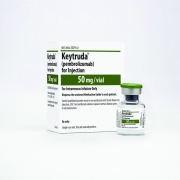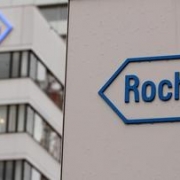Merck announced the publication of results from the Phase 3 KEYNOTE-522 trial in the Feb. 10, 2022 edition of the New England Journal of Medicine. Results showed that neoadjuvant Keytruda in combination with chemotherapy followed by adjuvant Keytruda as monotherapy, significantly prolonged event-free survival compared with neoadjuvant chemotherapy followed by adjuvant placebo in patients with high-risk early-stage triple-negative breast cancer (TNBC).
Gilead Combo Therapy Hit with FDA Hold Over Serious Adverse Events
Acute Myeloid Leukemia (AML), CD47 Protein, Clinical Trials, Combination Therapies, Diffuse large B-cell lymphoma (DLBCL), FDA/Regulatory, Gilead, Head & Neck Squamous Cell Carcinoma (HNSCC), Malignancies, Myelodysplastic Syndromes, Partial Clinical Hold, R&D, Triple Negative Breast Cancer (TNBC)The U.S. Food and Drug Administration placed a partial clinical hold on studies conducted by Gilead Sciences assessing the combination of magrolimab plus azacitidine due to concerns of unexpected serious adverse events between study arms.
Researchers at the Cleveland Clinic are set to launch a Phase I trial for what could be the first-ever vaccine to prevent triple-negative breast cancer.
Research Roundup: Regrowing Nerve Cells in Spinal Cord Injuries and More
Breast Cancer, Cancer Cell, Cells, Central Nervous System, COVID-19 Vaccines, DNA, Glaucoma, Integrin inhibitors, Mammalian, Nanoparticles, Nerve Cells, Neurons, Northwestern University, Pregnancies, Spinal Cord, UC Berkeley, Washington University School of Medicine in St. LouisInvestigators at Washington University School of Medicine in St. Louis identified a compound that can help sensory neurons in the central nervous system to heal.
The U.S. Food and Drug Administration approved Eli Lilly’s Verzenio (abemaciclib) for a specific type of early breast cancer that is at high risk of recurrence after surgery.
AstraZeneca’s candidate breast cancer therapy Enhertu received a fourth Breakthrough Therapy Designation from the U.S. Food and Drug Administration after the health regulator issued another BTD based on a Phase III trial presented at the European Society for Medical Oncology Congress 2021.
Germany’s Merck KGaA and Britain’s GlaxoSmithKline on Thursday ended their collaboration on the cancer treatment bintrafusp alfa, once seen as one of Merck’s most promising experimental drugs.
Biopharma companies big and small presented exciting clinical studies at the European Society for Medical Oncology Congress 2021.
In MacroGenics’ SOPHIA Phase III study in adults with metastatic HER2-positive breast cancer, the biopharmaceutical company’s Margenza plus chemotherapy failed to show a statistically significant advantage when compared to trastuzumab plus chemotherapy in the intent-to-treat population.
Roche Holding AG decided to withdraw the company’s immunotherapy Tecentriq as a treatment for a type of breast cancer in the United States, the drugmaker said on Aug. 26 following a consultation with the Food and Drug Administration.










